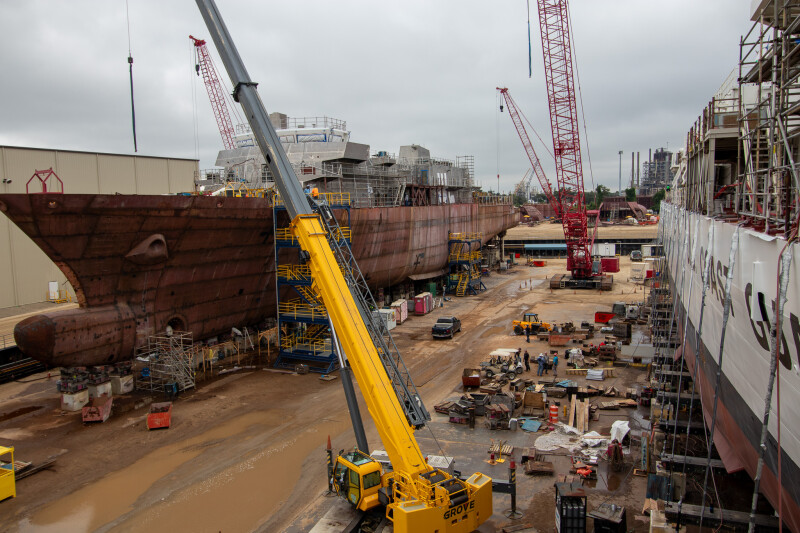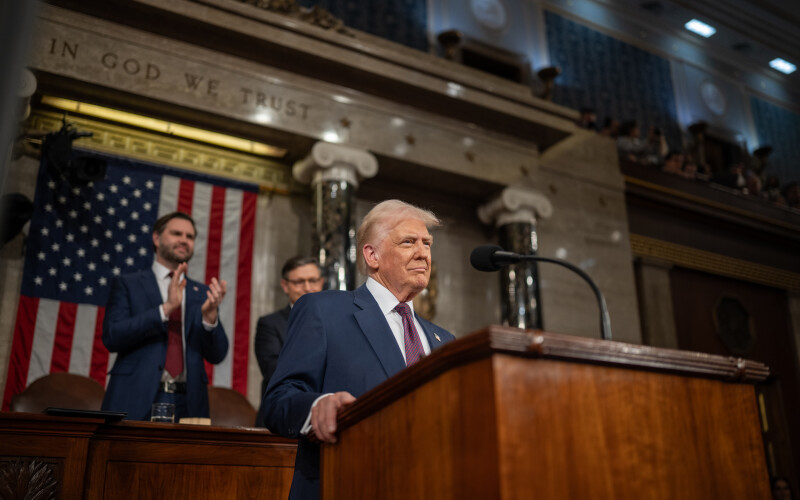On March 4, President Donald Trump told Congress that his administration plans to boost U.S. shipbuilding, pledging support for both military and commercial vessel construction.
“We are also going to resurrect the American shipbuilding industry, including commercial shipbuilding and military shipbuilding," Trump said. “We used to make so many ships. We don’t make them anymore very much, but we’re going to make them very fast, very soon. It will have a huge impact to further enhance our national security."
Trump announced the creation of a White House Office of Shipbuilding as part of the effort. He also proposed “special tax incentives to bring this industry home to America, where it belongs," but did not offer specifics. The White House has not provided additional details on the office’s scope or leadership.
China’s dominance in global shipbuilding was a focal point of Trump’s remarks. The U.S. Trade Representative (USTR) recently announced a fee of up to $1.5 million on Chinese-built vessels entering U.S. ports, citing unfair competition. Trade officials noted that the U.S. ranks 19th in global commercial ship production.

Bipartisan legislation has also been introduced to address these challenges. In December 2024, the Shipbuilding and Harbor Infrastructure for Prosperity and Security (SHIPS) for America Act, introduced by Sens. Mark Kelly, D-Ariz., and Todd Young, R-Ind., along with Reps. John Garamendi, D-Calif., and Trent Kelly, R-Miss., seeks to revitalize the U.S. shipbuilding industry through federal oversight, funding, workforce development, and incentives for domestic production, which legislators say have been weakened by decades of neglect.
Trump’s announcement comes as other lawmakers also raise concerns about the state of U.S. shipbuilding. During the recent confirmation hearing for Navy Secretary nominee John Phelan, Senate Armed Services Committee Chairman Roger Wicker, R-Miss., called for reforms to address delays and budget overruns in major shipbuilding programs.
“We must stabilize shipbuilding programs, adopt commercial best practices and incentivize the shipyards to address workforce and productivity issues in a collaborative rather than combative manner," Wicker said. “And we can quickly inject innovation into naval procurement, particularly on unmanned ships."
Industry leaders responded positively to Trump’s announcement. Shipbuilders Council of America president Matthew Paxton said the initiative is a step toward restoring U.S. competitiveness.
“The U.S. shipyard industry has long played a critical role in national security and remains committed to building the fleet of the future," Paxton said. “We applaud the creation of the White House Office of Shipbuilding and stand ready to work with the administration to restore American competitiveness and create thousands of skilled jobs."
In a LinkedIn post, Eastern Shipbuilding Group, Inc. also voiced support.
“A strong, thriving shipbuilding sector is vital to our nation’s prosperity, national security, and energy dominance," the shipyard said in a statement. “By investing in American shipbuilders and restoring American leadership on the seas, the President will improve our security and create high-quality jobs that support families in Florida and communities across the country."
Despite these measures, experts warn that the U.S. shipbuilding industry still faces challenges in workforce training, supply chain constraints, and overall manufacturing capacity. How the new White House office will address these concerns remains to be seen.




